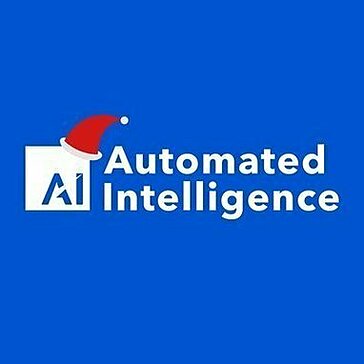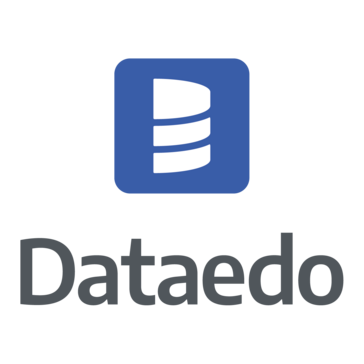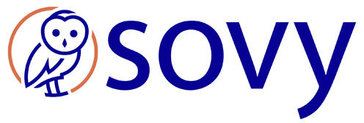4.25
Collibra Review
Discover our detailed Collibra review. Explore features, pricing, security, support, and updates. Assess its value for money and see if it fits your needs!
Comprehensive overview and target audience
Comprehensive overview of Collibra and target audience
Collibra positions itself as a Data Intelligence platform, offering a robust suite of tools designed primarily for data governance, data cataloging, and data privacy initiatives. It aims to provide organizations with a single source of truth for understanding their data landscape, enabling better decision making and ensuring compliance. The platform is recognized for its comprehensive capabilities in managing complex data environments effectively.
The primary target audience for Collibra consists of large enterprises and organizations with significant data complexity or stringent regulatory requirements. This typically includes sectors like finance, healthcare, insurance, and government agencies. Key users within these organizations often include Chief Data Officers, data stewards, data analysts, compliance officers, and IT teams who require sophisticated tools to manage metadata, data lineage, data quality rules, and policy enforcement across vast and diverse data ecosystems. Collibra’s ability to scale and handle intricate data relationships makes it suitable for these demanding scenarios.
Evaluating Collibra involves looking beyond its core features. The company demonstrates a commitment to evolving its platform through regular **Collibra updates and new features**, ensuring it adapts to emerging data trends and customer needs. Security is paramount for its clientele; therefore, robust **Collibra security features** are integral to the platform, encompassing aspects like role based access control, encryption, and audit trails designed to meet enterprise standards and protect sensitive information. These continuous improvements and security considerations are vital for organizations investing in long term data intelligence solutions.
Considering the investment, potential buyers often examine **Collibra value for money**. While a detailed **Collibra pricing comparison** reveals it sits at the premium end of the market, often requiring custom quotes tailored to specific organizational needs, its value proposition lies in addressing complex governance challenges at scale which can lead to significant ROI through risk reduction and efficiency gains. To maximize this value, comprehensive **Collibra support and training resources** are available, including documentation, community forums, and professional services. These resources are essential for successful implementation and user adoption given the platform’s depth and breadth of functionality.
User experience and functional capabilities
Delving into the user experience and functional capabilities of Collibra reveals a platform designed with significant power and depth, tailored for enterprise scale data intelligence needs. Collibra user experience insights often point towards a sophisticated interface that, while comprehensive, can present a steep learning curve for new users. The platform centralizes various data management functions, offering a unified environment for tasks crucial to data governance and understanding.
Understanding how to use Collibra effectively involves engaging with its core modules: the Data Catalog for discovering and understanding data assets; Data Governance for defining policies, standards, and ownership; Data Lineage for tracing data flows; and Data Quality for monitoring and improving data integrity. Navigation typically involves browsing assets, viewing relationships, participating in workflows, and utilizing dashboards for oversight. While powerful, mastering these interactions often requires dedicated training and familiarity, underlining the importance of structured onboarding processes.
The platform’s functional richness supports complex use cases. However, this complexity can translate into implementation challenges. Successfully deploying Collibra usually necessitates careful planning, often guided by a detailed Collibra implementation guide and expert assistance. Common problems with Collibra reported by users sometimes include the initial configuration effort, the need for dedicated administrative resources, and achieving broad user adoption across diverse technical and business teams. Overcoming these hurdles is key to unlocking the platform’s full potential.
A significant strength lies in its integration capabilities. Integrating Collibra with other tools across the data ecosystem is fundamental to its value proposition. It offers connectors and APIs to link with various data sources, business intelligence platforms like Tableau or Power BI, data quality tools, and cloud environments such as AWS, Azure, and Google Cloud. This connectivity ensures that metadata and governance policies are consistently applied and accessible throughout the organization’s technology stack.
Collibra demonstrates a commitment to evolution through regular Collibra updates and new features. These enhancements often address usability feedback, expand functional capabilities, and improve integration options, keeping the platform aligned with emerging data management trends and customer requirements. To maximize benefits, adhering to best practices for Collibra is essential. This includes establishing clear data governance roles and responsibilities, defining workflows meticulously, investing in user training, and fostering a data literate culture. Properly implemented and managed, Collibra provides robust capabilities essential for governing complex data landscapes effectively.
Who should be using Collibra
Collibra is primarily designed for large enterprises and complex organizations grappling with significant data volumes, variety, and velocity. Industries facing stringent regulatory oversight such as finance, healthcare, insurance, and government agencies often find Collibra indispensable. Within these organizations, key stakeholders include Chief Data Officers, data governance teams, data stewards, compliance officers, data architects, and data analysts who need a centralized platform to manage and understand their data assets effectively.
Organizations that benefit most from Collibra typically exhibit specific needs. These include requirements for establishing strong data governance frameworks, improving data discovery and accessibility through a comprehensive data catalog, ensuring data lineage transparency for impact analysis and regulatory reporting, managing data quality rules and monitoring, and enforcing data privacy policies consistently across the enterprise. If your organization struggles with data silos, lacks trust in its data, or needs to demonstrate compliance rigorously, Collibra offers potential solutions.
A typical Collibra use case scenario involves an organization aiming to centralize its fragmented metadata management. For instance, a large bank might use Collibra to create a single source of truth for critical data elements used in regulatory reporting, tracing their lineage from source systems to final reports to ensure accuracy and auditability. Another scenario could be a healthcare provider using Collibra to manage patient data definitions and enforce privacy policies according to regulations.
However, succeeding with Collibra requires commitment. It is best suited for organizations ready to invest in change management, dedicate resources for data stewardship and platform administration, and embrace structured processes. Implementing Best practices for Collibra, such as establishing clear governance roles, defining robust workflows, and fostering a data literate culture, is crucial for realizing the platform’s full value. Organizations looking for a quick, lightweight data catalog without comprehensive governance needs might find Collibra overly complex. Ultimately, Collibra is for entities serious about strategic data management and governance at scale.
Unique Features offered by Collibra
Collibra offers significant flexibility, allowing organizations to tailor the platform to their specific data governance and intelligence requirements. This adaptability is a core strength, enabling businesses to align the tool precisely with their operational processes and strategic objectives. The platform is not a rigid, one size fits all solution; instead, it provides a foundation that can be extensively configured.
Key customization options revolve around its operating model, metadata structure, and workflows. Organizations can define custom asset types, attributes, relationships, and statuses to mirror their unique data landscape and terminology. Workflows for tasks like data certification, issue resolution, and policy approval can be designed from scratch or adapted from templates, ensuring processes embedded within Collibra match established business practices. This deep level of configuration is central to Customizing Collibra for business growth, as it allows the platform to evolve alongside the organizations data maturity and changing needs. Custom dashboards and reporting views can also be created to provide relevant insights to different user groups.
Beyond customization, Collibra presents unique features that differentiate it. Its emphasis on a defined operating model provides a structured approach to governance implementation. The integrated workflow engine automates complex processes, fostering collaboration and ensuring accountability across data stewardship tasks. Furthermore, Colibras robust focus on policy management and data lineage provides comprehensive traceability crucial for compliance and impact analysis. A cornerstone of its architecture involves Integrating Collibra with other tools. It boasts an open philosophy with extensive APIs and pre built connectors, facilitating seamless communication with data sources, BI platforms, data quality solutions, and cloud ecosystems. This ensures Collibra acts as a central hub within a broader data management stack.
While designed primarily for large enterprises due to its depth and pricing structure, the possibility of using Collibra for small businesses exists, though it often requires careful consideration of resource allocation for implementation and management. Smaller organizations might leverage specific modules or a more focused implementation. The platform’s inherent scalability means it can support growth, but its comprehensive nature makes it most impactful in complex environments seeking robust, customizable governance and data intelligence capabilities. These features collectively empower organizations to build trust in their data and leverage it effectively.
Pain points that Collibra will help you solve
Many organizations struggle with a chaotic data landscape. Data is often hidden, poorly understood, or untrusted, leading to significant business challenges. Collibra directly addresses these critical pain points, transforming data from a liability into a strategic asset.
Key problems Collibra tackles include:
- Lack of Data Trust and Visibility: Businesses frequently operate with “dark data” unable to verify its accuracy or origin. Collibra establishes a system of record for data assets, definitions, and ownership, building trust through transparency and clear governance protocols.
- Inefficient Data Discovery: Finding the right data for analysis or reporting can be time consuming and frustrating. Collibra’s Data Catalog acts as a central inventory, making it easier for users to discover, understand, and access the data they need quickly.
- Compliance and Regulatory Burdens: Meeting stringent regulations like GDPR or CCPA requires meticulous data tracking and policy enforcement. Collibra provides robust capabilities for managing data privacy, lineage tracing, and automating compliance workflows, reducing risk and effort.
- Poor Data Quality: Decisions based on flawed data can be costly. Collibra helps define and monitor data quality rules, enabling proactive identification and remediation of issues, ensuring data is fit for purpose.
- Data Silos and Integration Challenges: Fragmented systems prevent a unified view of enterprise data. A key strength is Integrating Collibra with other tools across your technology stack, breaking down silos and providing a consistent governance layer.
- Scalability and Adaptability Needs: As organizations evolve, their data governance requirements change. Customizing Collibra for business growth allows the platform to adapt to specific operational models, workflows, and metadata structures, ensuring long term relevance and value. While often perceived as suited mainly for large enterprises, the adaptability inherent in Collibra for different businesses sizes allows focused implementations, though resource commitment remains a consideration.
By providing a structured framework for data governance, cataloging, lineage, quality, and privacy, Collibra empowers organizations to overcome these common obstacles, fostering collaboration, improving decision making, and driving data driven initiatives forward confidently.
Scalability for business growth
A critical factor for any growing enterprise is the ability of its core systems to scale effectively. Collibra is architected with scalability at its core, designed to support organizations not just today, but as their data landscape expands and complexity increases. This inherent scalability ensures that the platform remains a viable and valuable asset throughout a company’s growth trajectory, handling burgeoning data volumes, user bases, and evolving governance demands without compromising performance.
Collibra’s capacity to scale manifests in several key ways:
- Handling Data Volume and Variety: As businesses grow, so does their data. Collibra is built to manage metadata for vast and diverse datasets, integrating seamlessly with cloud platforms and big data technologies where this growth often occurs. Its robust infrastructure can process and catalog increasing amounts of information efficiently.
- Supporting User Growth: More business activity typically means more people interacting with data. Collibra accommodates an expanding number of users, from data stewards and analysts to business users across various departments, ensuring consistent access control and performance.
- Adapting Governance Processes: Business growth often necessitates more sophisticated governance frameworks and workflows. The platform’s flexibility allows for this evolution. The ability involved in Customizing Collibra for business growth means that workflows, policies, and operating models can be refined and expanded as requirements change, ensuring ongoing alignment.
Furthermore, the platform’s adaptability extends to its integration capabilities. As organizations adopt new tools and technologies, Collibra’s open architecture allows it to connect and provide consistent governance across an increasingly complex ecosystem. This focus on Customizing Collibra for business scalability means it does not become a bottleneck; instead, it facilitates broader data intelligence initiatives. This ensures that the investment in Collibra continues to deliver value, supporting strategic decision making and operational efficiency even as the business achieves significant scale.
Final Verdict about Collibra
Collibra stands as a formidable force in the enterprise data intelligence landscape. It offers a deeply comprehensive suite of tools designed to tackle the most complex data governance, cataloging, lineage, quality, and privacy challenges faced by large organizations today. Its strength lies in creating a unified, trusted system for managing critical data assets, fostering collaboration, and enabling data driven decision making.
The platform excels in environments demanding rigorous compliance and sophisticated data understanding, particularly within sectors like finance and healthcare. Key benefits consistently highlighted include:
: Its ability to establish a single source of truth for data, enhancing trust and visibility.
: Streamlined data discovery through a powerful catalog.
: Robust support for navigating complex regulatory requirements.
: Mechanisms for improving and monitoring data quality.
: Extensive customization options allowing businesses to tailor the platform precisely to their operating models and workflows.
: Proven scalability to handle growing data volumes, user bases, and evolving governance needs.
However, Collibra is not without its considerations. The platform’s depth translates into a potentially steep learning curve and necessitates significant commitment regarding implementation resources, planning, and ongoing administration. Its position at the premium end of the market reflects its enterprise focus and extensive capabilities, requiring careful evaluation of value against organizational needs and readiness. It demands a strategic investment, not just in software, but in fostering a mature data governance culture.
Our **Final verdict on Collibra** is overwhelmingly positive for its intended audience. For large enterprises grappling with complex data ecosystems and serious about establishing robust, scalable data governance and intelligence frameworks, Collibra remains a market leading solution. It effectively addresses critical data pain points and provides the adaptable, powerful foundation needed to turn data into a reliable strategic asset. If your organization possesses the complexity, resources, and strategic commitment, Collibra represents a compelling, albeit significant, investment in data mastery.
Advantage
Disadvantage
Unified platform for data governance control
Easily discover and understand your data assets
Automated cataloging streamlines data inventory management
Boosts collaboration between business and IT teams
Clear end-to-end data lineage visualization
Disadvantage
High total cost of ownership
Complex implementation requires expertise
Steep learning curve for new users
Requires significant dedicated resources
User interface can feel complex
Rating
Product Support
Web Based
Windows
Mac OS
Linux
Android
iOS
Phone Support
Email/Help Desk
AI Chat Bot
Live Support
24/7 Support
Forum & Community
Knowledge Base
Live Online
Documentation
Videos
In Person
Webinars
Company: Collibra
Email: Not Available
Address:
1372 Broadway, Floor 20, New York, NY 10018Phone: +1 888 775 5957
Implementation
Web Based
Windows
Mac OS
Linux
Android
iOS
Support
Phone Support
Email/Help Desk
AI Chat Bot
Live Support
24/7 Support
Forum & Community
Knowledge Base
Training
Live Online
Documentation
Videos
In Person
Webinars
Group text
Company: Collibra
Email: Not Available
Address:
1372 Broadway, Floor 20, New York, NY 10018
Phone: +1 888 775 5957
Alternative Products
Frequently Asked Questions
What exactly is Collibra and what problem does it solve?
Collibra is a comprehensive Data Intelligence platform designed to tame data chaos within organizations. It tackles the critical problem of managing, understanding, and trusting complex data landscapes, ensuring data becomes a reliable asset rather than a confusing liability by providing a central system of record for data meaning, rules, and usage.
How can Collibra help me improve data governance and intelligence?
Collibra empowers your organization by centralizing data governance efforts through features like a comprehensive data catalog, automated data lineage, and robust policy management. This fosters trust, ensures regulatory compliance, breaks down data silos, and enables users across the business—not just IT—to easily find, understand, and utilize high-quality, governed data for smarter decision-making and accelerated insights.
Who is the typical user or target organization for Collibra?
Collibra typically serves medium to large enterprises, particularly those in highly regulated industries like finance, healthcare, and insurance, or any organization grappling with significant data complexity and scale. Its users range from technical roles like data stewards, data engineers, and IT managers to business users like data analysts, compliance officers, and data scientists who need reliable data.
What are the standout features or core capabilities of the Collibra platform?
Key capabilities include its robust Data Catalog for discovering and understanding data assets, automated Data Lineage for tracing data origins and transformations, integrated Data Quality monitoring and rules, a flexible Governance Workflow engine for policy enforcement and collaboration, and dedicated modules for Data Privacy management, all unified within a collaborative, user-friendly interface.
Is Collibra worth it considering its cost and capabilities?
While Collibra represents a significant investment, its value lies in its comprehensive capabilities and potential ROI for organizations serious about data governance and intelligence. For businesses struggling with data trust, compliance mandates, or inefficient data discovery, the platform’s ability to mitigate risk, improve operational efficiency, and unlock data value often justifies the cost; however, smaller organizations with simpler needs might find lighter solutions more cost-effective.
How easy or difficult is it to implement and integrate Collibra?
Implementing Collibra is typically a strategic undertaking, not a simple plug-and-play process, often requiring careful planning, dedicated resources, and change management. Its complexity stems from its power and configurability. However, it offers extensive connectors and APIs for integration with diverse data sources and tools, and its success heavily depends on a well-defined strategy and potentially professional services engagement.
What kind of support and community resources does Collibra offer?
Collibra offers robust support options, including technical assistance, dedicated customer success managers, and extensive online documentation. It also fosters a strong user community through forums (like Collibra Community), user groups, and its annual Data Citizens conference, providing valuable peer-to-peer learning and best practice sharing opportunities, alongside formal training via Collibra University.
How does Collibra compare to its main competitors in the market?
Compared to key competitors like Alation, Informatica (Axon/EDC/IDQ), IBM Watson Knowledge Catalog, and emerging players, Collibra often differentiates itself with its strong emphasis on collaborative governance workflows, business user accessibility, and its breadth as a dedicated Data Intelligence platform. While competitors might lead in specific niches (e.g., technical metadata focus or integration within a broader vendor stack), Collibra is frequently chosen for its comprehensive, governance-first approach.








